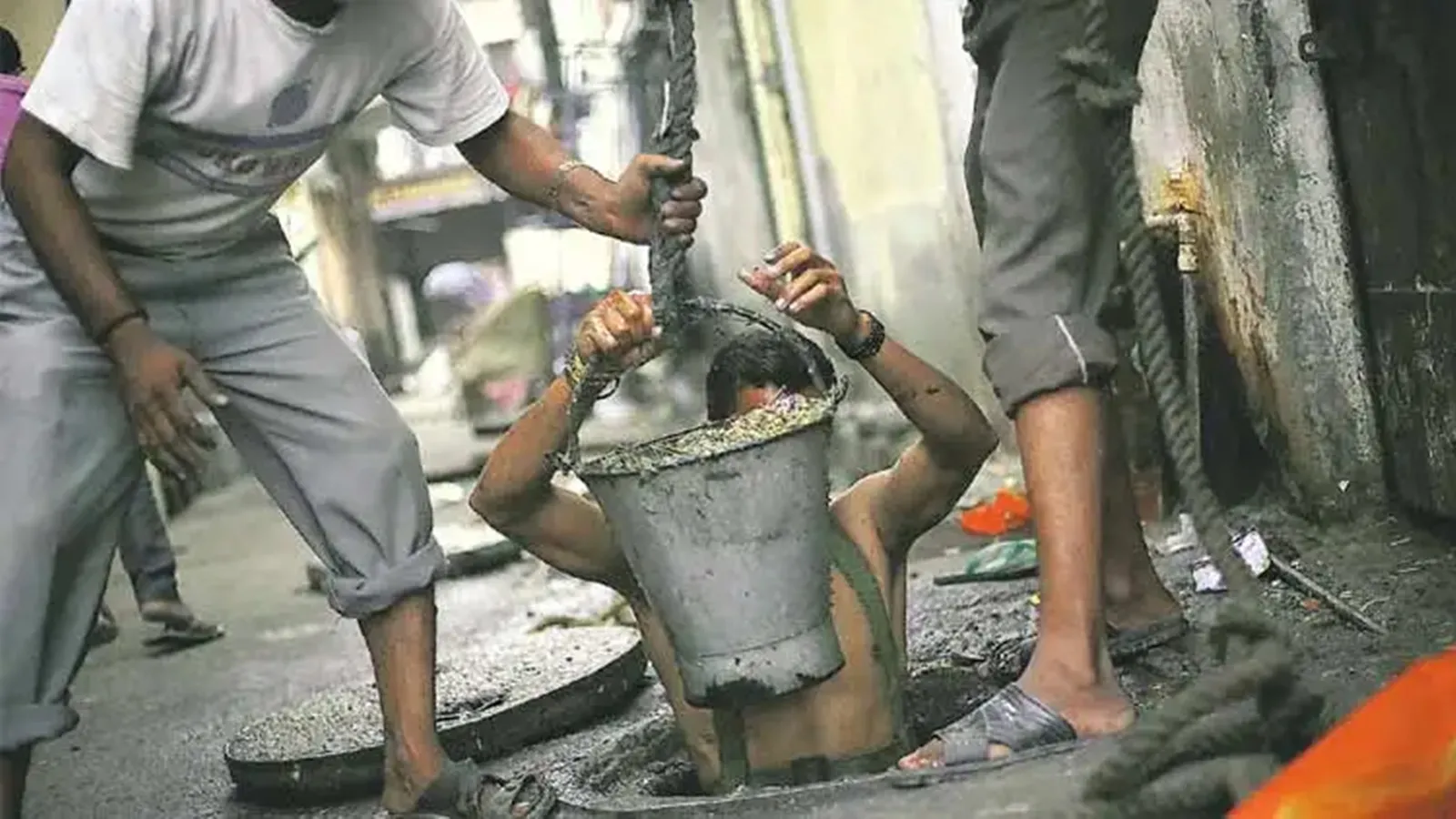The Swachh Bharat Mission (SBM) completed 10 years last month. The country also has an urban Swachh Bharat Mission. However, every year, rains lay bare the inadequate state of sanitation, sewage and drainage in India’s cities and towns. Poorly constructed toilets, septic tanks and drains get choked or overflow, becoming a breeding ground for disease and exacerbating the risks faced by poor residents, migrants and sanitation workers. While urban wastewater hazards are most visible in the monsoons, in reality only 28 per cent of India’s urban sewage is treated, with the rest released in rivers, seas and streams.
Sanitation is a human right, a public good and critical for health and productivity. It is also one of the most off-track Sustainable Development Goals, with 43 per cent of the world’s population lacking access to safe sanitation. In India, as in many parts of the Global South, centralised and capital-intensive sanitation and waste management systems are largely restricted to the mega-cities with towns and smaller cities disconnected from networked treatment plants and sewage systems. This makes safely managed sanitation and waste management in urban areas one of India’s most compelling challenges.
In the 2024-2025 budget, drinking water and sanitation received an allocation of
Rs 77,390.68 crore, a meagre increase of only 0.5 per cent from the 2023-2024 allocation, with 90 per cent of money allocated to the National Rural Drinking Water Programme. The flagship sanitation programmes SBM Urban and SBM Grameen received no increase in funding. Funding for the AMRUT and Smart Cities Mission has been reduced from Rs 13,200 crore to Rs 10,400 crore.
Until 2014, India had the world’s highest prevalence of open defecation with about 600 million defecating outdoors. While Prime Minister Modi stated in 2019 that India was open defecation free (ODF), there are reports of significant open defecation, especially in rural areas. Even if towns and cities have achieved “Open Defecation Free (ODF) Plus” status, many areas remain exposed to limited or unsafe excreta disposal and lack adequate infrastructure for sewage and wastewater collection and treatment.
In unplanned and growing towns, localities occupied by migrants, Dalits and other socially marginalised groups routinely encounter poorly managed sewer networks, blocked toilets and open drains.
Over 65 per cent of urban India relies on onsite sanitation systems such as pits and septic tanks. A workshop organised at IIT Bombay in March looked at the challenges for FSM across the country.
While there has been significant progress in faecal sludge treatment plants (FSTPs), especially in Orissa and Maharashtra, many are underutilised in other parts of the country or do not function properly.
While manual scavenging is officially banned in India, problems in the system often increase reliance on these workers. Many policies promote machine cleaning, yet existing septic tank designs are often not suitable for machines. Manual scavengers and other informal sanitation service providers continue to provide cheap labour for the maintenance of the sanitation system.
Data from 2018 to 2023 reveals that over 400 people died while cleaning septic tanks and sewers. Yet, authorities routinely deny the existence of manual scavengers and informal sanitation workers.
The current budget does not have any provisions to rehabilitate manual scavengers or sanitation workers. While the 2022 NAMASTE scheme by the Ministry of Social Justice and Empowerment mentions rehabilitation as one of the objectives, the emphasis is on providing safety and skill training to the workers. This fails to address the historical injustices faced by these communities.
These challenges can be an opportunity to reimagine off-grid urban areas for decentralised innovations that are people-centred, sustainable, equitable and contribute to economic growth. Faecal sludge is rich in organic compounds. A circular economy approach of resource recovery and reuse holds the promise of converting the sludge to biogas or fertiliser — “brown gold”.
However, numerous hurdles exist, not least due to the inability of authorities to collect and safely dispose of the sludge and the lack of attention to the critical roles performed by marginalised formal and informal sanitation workers in local municipalities, mostly linked to the caste system.
To avoid disease burden, contamination of water bodies and further marginalisation of poor urban dwellers, especially vulnerable women, workers and migrants, national, state and local authorities need to roll out systematic solutions and pursue a holistic approach, incorporating long-term planning and appropriate financial mechanisms. Transparent data regarding the entire sanitation chain, including the invisible manual workers, robust institutional and regulatory frameworks as well as community participation in policy formulation and long-term action research specific to local dynamics are critical.
Mehta is at the Institute of Development Studies, UK and Norwegian University of Life Sciences. Hariprasad V M is a doctoral candidate at IIT Bombay



